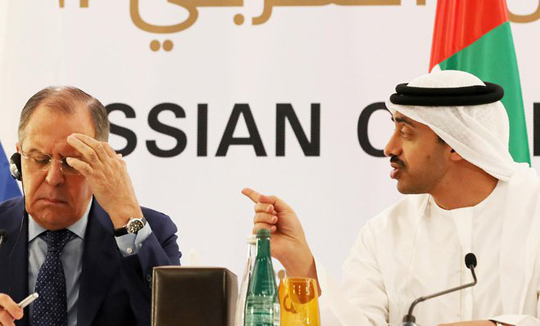Abu Dhabi, Feb 2: The UAE’s top diplomat on Wednesday came out in defense of President Donald Trump’s order temporarily barring citizens from seven Muslim-majority countries from entering the US.

Sheikh Abdullah bin Zayed Al-Nahyan, UAE foreign minister, said the US was within its rights to take what he said was a “sovereign decision” concerning immigration.
Sheikh Abdullah also voiced faith in the American administration’s assurances that the move was not based on religion, and noted that most of the world’s Muslim-majority countries were not covered by the order.
“There is a temporary ban and will be revised in three months, so it is important that we put into consideration this point,” he said.
“Some of these countries that were on this list are countries that face structural problems,” he continued. “These countries should try to solve these issues ... and these circumstances before trying to solve this issue with the US.”
Meanwhile, UN Secretary-General Antonio Guterres called for lifting the ban, saying the measures would not prevent terrorists from entering the US. “I think that these measures should be removed sooner rather than later,” Guterres told reporters.
“Those measures indeed violate our basic principles and I think that they are not effective if the objective is to, really, avoid terrorists to enter the US,” he said. “If a global terrorist organization will try to attack any country like the US, they will probably not come with people with passports from those countries that are hotspots of conflicts today.”
“They might come with the passports from the most — I would say — developed and credible countries in the world or they might use people who are already in the country.”
British Premier Theresa May told British lawmakers that the ban was “divisive and wrong,” five days after she initially refused to condemn the move.
The Vatican, meanwhile, voiced “concern” over the ban and Trump’s executive orders to build a wall on the US-Mexican border and impose.
“Naturally, there is concern,” the Holy See’s number three, Monsignor Angelo Becciu, said.





Comments
Add new comment